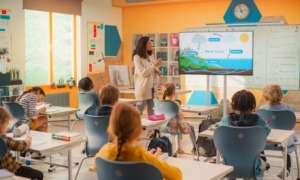
Giruba_86/Shutterstock
.
As the country battles another recession brought on by the COVID-19 pandemic, unemployment numbers soar. With more than 30 million people not working, the United States is facing the worst unemployment rates since The Great Depression. What does that mean for young people with disabilities who already have a harder time finding work? I spoke to three people about the impact COVID-19 has had on them finding and keeping employment during this unprecedented time.
Devin Manning is 21, lives in Ashburn, Virginia, and uses the pronouns they/them. Manning lives with several chronic illnesses including fibromyalgia, which causes widespread musculoskeletal pain plus sleep, memory and mood issues, and hypermobility spectrum disorder, a group of conditions related to joint hypermobility. They also have idiopathic intracranial hypertension (high pressure inside the skull), chronic migraines, chronic fatigue, chronic tinnitus, auditory processing issues, neuropathy and other conditions that are undiagnosed.
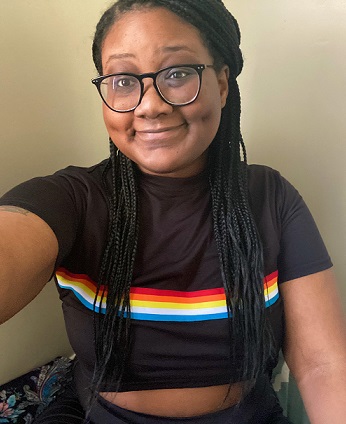
Devin Manning
Manning said they lost their job due to COVID-19. “In the middle of March, I was laid off from my job due to COVID and I was also forced to relocate from my college city to my hometown. Losing my income was not something I could afford, but there wasn’t any other option. I am now employed again, in food service (as I was before), but COVID makes every shift feel so risky …”
They said that as an advocate and activist in the disabled community the pandemic is a scary thing to navigate: “I think that COVID has had quite a significant impact on disabled youth/disabled people in general … Accessibility is an afterthought (even though at the beginning of the pandemic, things were more accessible by default due to telecommunication measures that [had] to be taken), many people aren’t following restriction guidelines and therefore increasing numbers drastically …”
Jillian “Ryan” Hooks is 19 and lives in Chandler, Arizona. Hooks has Ehlers-Danlos Syndrome, which affects the body’s connective tissue and, in her case, causes a variety of neurosurgical comorbidities. She also suffers from severe postural orthostatic tachycardia syndrome (POTS), a condition that affects blood circulation, as well as chronic fatigue syndrome (ME/CFS).
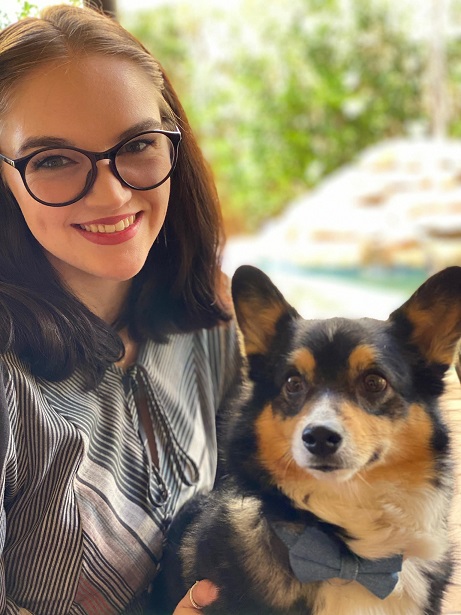
Jillian “Ryan” Hooks
Like many in the community, she is not able to work due to her disabilities. “I was not employed prior to COVID-19 (due to my disability), so my employment has not changed significantly due to the pandemic.” She sees how the pandemic has affected youth with disabilities in unique ways.
“Disabled youth across the globe have been denied vital care because of COVID-19. I lost my ability to walk in February of this year, and was scheduled to have urgent brain surgery in hopes of saving the use of my legs. That surgery, and the several subsequent operations I have needed, were delayed by three months. I may never truly know whether that time could have saved my ability to walk,” Hooks said.
Some people who work in the arts and entertainment industry have been affected by concert halls being shut down and performances being cancelled or postponed. Tiffany Geigel is 35 and lives in Brooklyn, New York. Shel lives with Jarcho-Levin syndrome (also known as spondylocostal dysostosis), a genetic condition in which the bones of the ribs and spine develop abnormally, causing a short torso and neck.
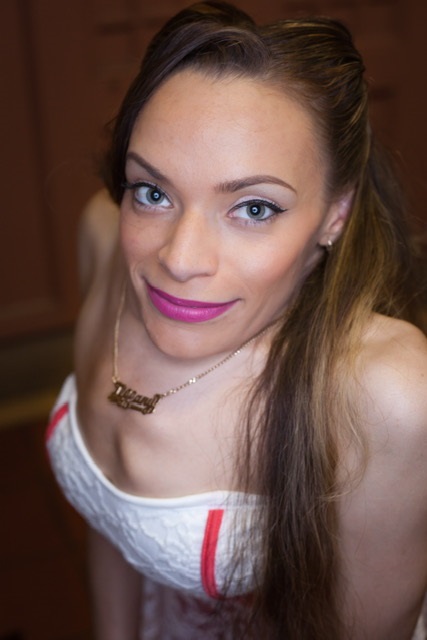
Tiffany Geigel
“I am a professional contemporary dancer, a teacher, stage manager and administrator,” she said. “I try to use my skills and voice to help advocate for people like me. For those that think they can’t, I like to tell them and show them that they can!”
Finding work right now is hard for artists, she said.
“I am not working right [now] … All artists unfortunately have not been able to go back into the studios,” Geigel said. “I am in the process of looking for more administrative/online work. Trying to get a job with a physical disability is difficult in itself but now with COVID it’s even more difficult. I pray every day for those who have been impacted by COVID19.”
The rise of unemployment due to COVID-19 has hit the country hard. Many minority communities, including people with disabilities, are struggling to meet their basic needs. With the country planning to open back up we need to keep an eye on marginalized groups. They should not be just an “afterthought.”
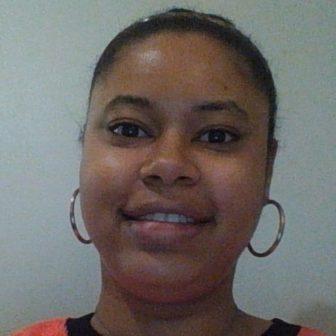
Deandra Mouzon
Deandra Mouzon is a Georgia-based journalist who received a B.A. in journalism from CUNY’s York College. Currently she is working on a publication about youth with disabilities.




